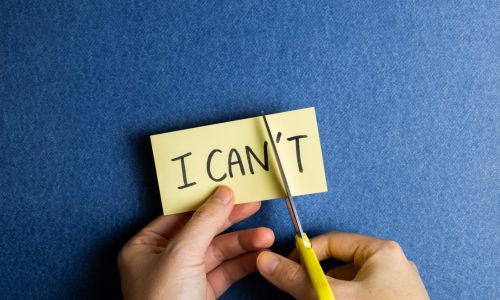Ever wondered why we jump out of bed some days, ready to conquer the world, and other times, the snooze button is our best friend? That’s motivation in action! It’s that little spark that pushes us to chase our dreams, stick to that workout, or even just tackle our to-do list. But what exactly is motivation, and why does it play hide and seek with us? Let’s dive in, figure out what’s behind this magic push, and discover some neat tricks to keep our motivation game strong!
What is Motivation?
Motivation is a multifaceted force that propels us to act, pursue goals, or exhibit certain behaviors. This drive can originate from deep within our psyche, inspired by personal passions, or be influenced by external rewards and recognitions.
- Inner Drive and Passion: Often, the zeal to chase our dreams or immerse ourselves in activities we love stems from an internal motivation. It’s like a flame, fueled by our passions and personal growth aspirations.
- External Stimulants: At times, tangible rewards such as bonuses, or intangible ones like accolades, push us towards accomplishing tasks.
- Mood Influences: Our motivational levels can ebb and flow, reflecting our moods, experiences, and surroundings.
- Learning and Expansion: The innate human desire to evolve and learn continuously can be a significant motivator. Ever been gripped by an urge to pick up a new skill? That’s intrinsic motivation nudging you towards growth.
- The Feel-Good Phenomenon: Achieving goals, big or small, infuses a sense of satisfaction, enhancing our overall life experience.
Unraveling the Components of Motivation
Diverse facets shape our motivation. From intrinsic elements that stem from within to extrinsic factors influenced by the world around us, motivation is an intricate interplay of:
- Intrinsic Motivation: Here, personal satisfaction or the joy of doing something fuels the drive.
- Extrinsic Motivation: This kind of motivation arises from external rewards, whether they be materialistic like money or intangible like praise.
- Cognitive Theories: These are based on individual beliefs, expectations, and perceptions.
- Emotional Elements: Emotions, both positive and negative, significantly influence our motivation levels.
- Physiological Factors: Aspects like hormones play pivotal roles in shaping our motivational drives.
- Social and Environmental Cues: Our motivation is often molded by societal norms, peer influences, and environmental triggers.
Why Does Motivation Sometimes Elude Us?
While it’s a potent force, motivation isn’t always consistent. Numerous factors can cause dips in our motivational levels:
- Lack of Alignment: If a task or goal doesn’t resonate with our interests or values, or doesn’t provide appealing rewards, our drive dwindles.
- Self-Doubt: Past failures or the fear of not being up to the mark can cloud our belief in ourselves, leading to reduced motivation.
- Feeling Overwhelmed: Facing an immense challenge without a clear starting point can be daunting, causing a motivational freeze.
- External Pressures: Pursuing something merely for societal approval rather than personal satisfaction can quench our intrinsic motivation.
- Mental and Emotional Hurdles: Emotional states, mental health challenges, or even surrounding negativity can impact our motivation.
Rekindling the Flame: Strategies to Maintain Motivation
Motivation isn’t static. It’s a dynamic force, and with the right strategies, it can be nurtured and maintained:
- Set Clear, Achievable Goals: Breaking tasks into manageable chunks can provide clarity and reduce feelings of being overwhelmed.
- Celebrate Small Wins: Recognizing and celebrating small achievements can boost confidence and motivation.
- Stay Connected to the ‘Why’: Regularly remind yourself of the bigger picture and how current tasks align with your larger goals.
- Surround Yourself with Positivity: Being around positive influences, whether it’s people or a conducive environment, can amplify motivation.
In conclusion, motivation is the backbone of achievement. Understanding its intricacies, recognizing what diminishes it, and employing strategies to maintain it can significantly enhance personal and professional outcomes.





